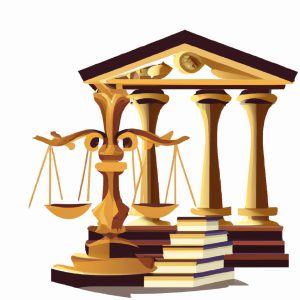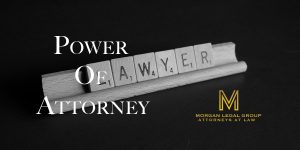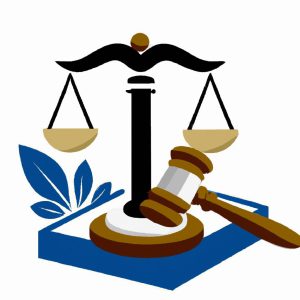As experienced attorneys at Morgan Legal Group in New York City, we understand the importance of ensuring your assets and wishes are protected for generations to come. With expertise in estate planning, probate, elder law, Wills, and trusts, our firm is dedicated to providing comprehensive legal solutions tailored to meet the individual needs of our clients. In this article, we will delve into the intricate world of attorney wills and trusts, guiding you through the complexities of estate planning and the importance of safeguarding your legacy.
Understanding the Role of an Attorney in Drafting a Will and Trust
When it comes to estate planning, drafting a will and trust are crucial components in ensuring your assets are properly distributed according to your wishes. An experienced attorney plays a key role in this process, guiding you through the legal requirements and complexities involved. Here are some key points to help you understand the role of an attorney in drafting a will and trust:
**Key Responsibilities of an Attorney in Drafting a Will and Trust**
- Assessing your unique financial and familial situation to determine the best estate planning strategy.
- Ensuring your will and trust are legally valid and comply with state laws.
- Providing advice on minimizing estate taxes and avoiding probate.
- Updating your will and trust as needed to reflect any changes in your life circumstances.
Key Considerations When Establishing a Trust with the Assistance of an Attorney
When establishing a trust with the assistance of an attorney, there are several key considerations to keep in mind to ensure that your wishes are properly documented and executed. One important factor to consider is the type of trust that best suits your needs. There are various types of trusts available, each with its own unique advantages and considerations. It is essential to work with an experienced attorney who can help you determine the most appropriate trust for your specific circumstances.
- Asset Protection: Protecting your assets from creditors and lawsuits is a crucial consideration when establishing a trust. An attorney can help you structure your trust to provide maximum protection for your assets.
- Beneficiaries: Clearly identifying your beneficiaries and their entitlements is essential to avoid confusion and disputes in the future. An attorney can help you draft provisions that clearly outline the rights and responsibilities of each beneficiary.
Navigating the Complexities of Probate and Estate Planning with Legal Guidance
When it comes to navigating the complexities of probate and estate planning, having legal guidance is crucial. An attorney specializing in wills and trusts can provide valuable insight and expertise to ensure that your assets are protected and distributed according to your wishes. At Morgan Legal Group, we understand the importance of proper estate planning and are dedicated to helping our clients achieve peace of mind.
With an attorney by your side, you can rest assured that your estate plan is in good hands. Whether you need assistance with drafting a will, setting up a trust, or navigating the probate process, our team of experienced lawyers is here to help. Trust in Morgan Legal Group to provide you with the guidance and support you need to effectively plan for the future.
Common Mistakes to Avoid When Creating a Will and Trust with Legal Counsel
When creating a will and trust with legal counsel, it is important to avoid common mistakes that could lead to complications in the future. One of the biggest mistakes is not clearly outlining your wishes and intentions in the documents. Be specific about who you want to inherit your assets and how you want them to be distributed. This will help prevent any confusion or disputes among your loved ones after you pass away.
Another common mistake to avoid is failing to update your will and trust regularly. Life circumstances change, such as marriage, divorce, births, deaths, and financial changes. It is crucial to review and update your estate planning documents to ensure they reflect your current situation and wishes. By regularly consulting with your legal counsel and making necessary updates, you can help prevent any issues with the distribution of your assets in the future.
Q&A
Q: What is the difference between a will and a trust?
A: A will is a legal document that outlines how a person’s assets and property should be distributed after their death, while a trust is a legal arrangement where one party holds assets for the benefit of another.
Q: Why should I have an attorney help me create a will and trust?
A: An attorney can ensure that your will and trust are legally valid and can help you navigate complex inheritance laws. They can also provide guidance on asset protection and tax planning.
Q: Can I create a will and trust on my own without an attorney?
A: It is possible to create a will and trust without an attorney, but it is not recommended, as mistakes or oversights could lead to legal issues and disputes among beneficiaries.
Q: What happens if I don’t have a will or trust in place?
A: If you die without a will or trust, your assets will be distributed according to your state’s laws of intestacy, which may not align with your wishes. Having a will and trust in place ensures that your assets are distributed as you see fit.
Q: How often should I update my will and trust?
A: It is recommended to review and update your will and trust at least every five years, or whenever there are significant life changes such as marriage, divorce, birth of a child, or purchase of major assets.
In Retrospect
In conclusion, creating a will and trust is a vital step in ensuring that your assets are protected and passed down according to your wishes. By consulting with an attorney specializing in estate planning, you can ensure that your loved ones are provided for and that your legacy is preserved. Don’t wait until it’s too late – take control of your future today. Remember, your attorney will and trust are powerful tools in securing your family’s future and peace of mind. Trust the experts to guide you through the process and safeguard what matters most to you. Thank you for reading.




